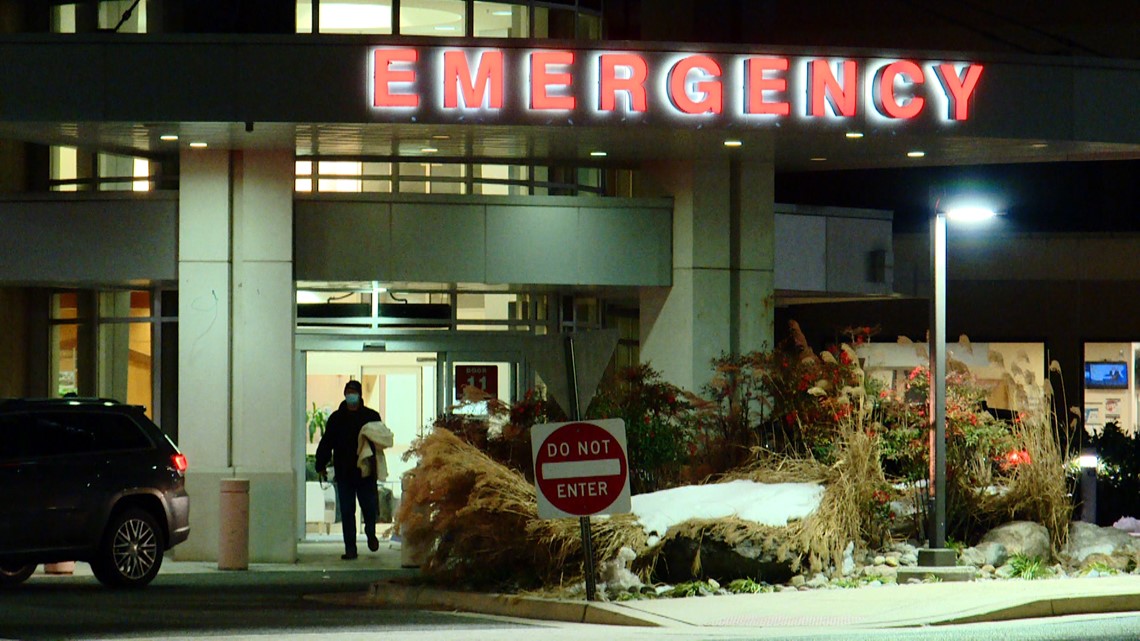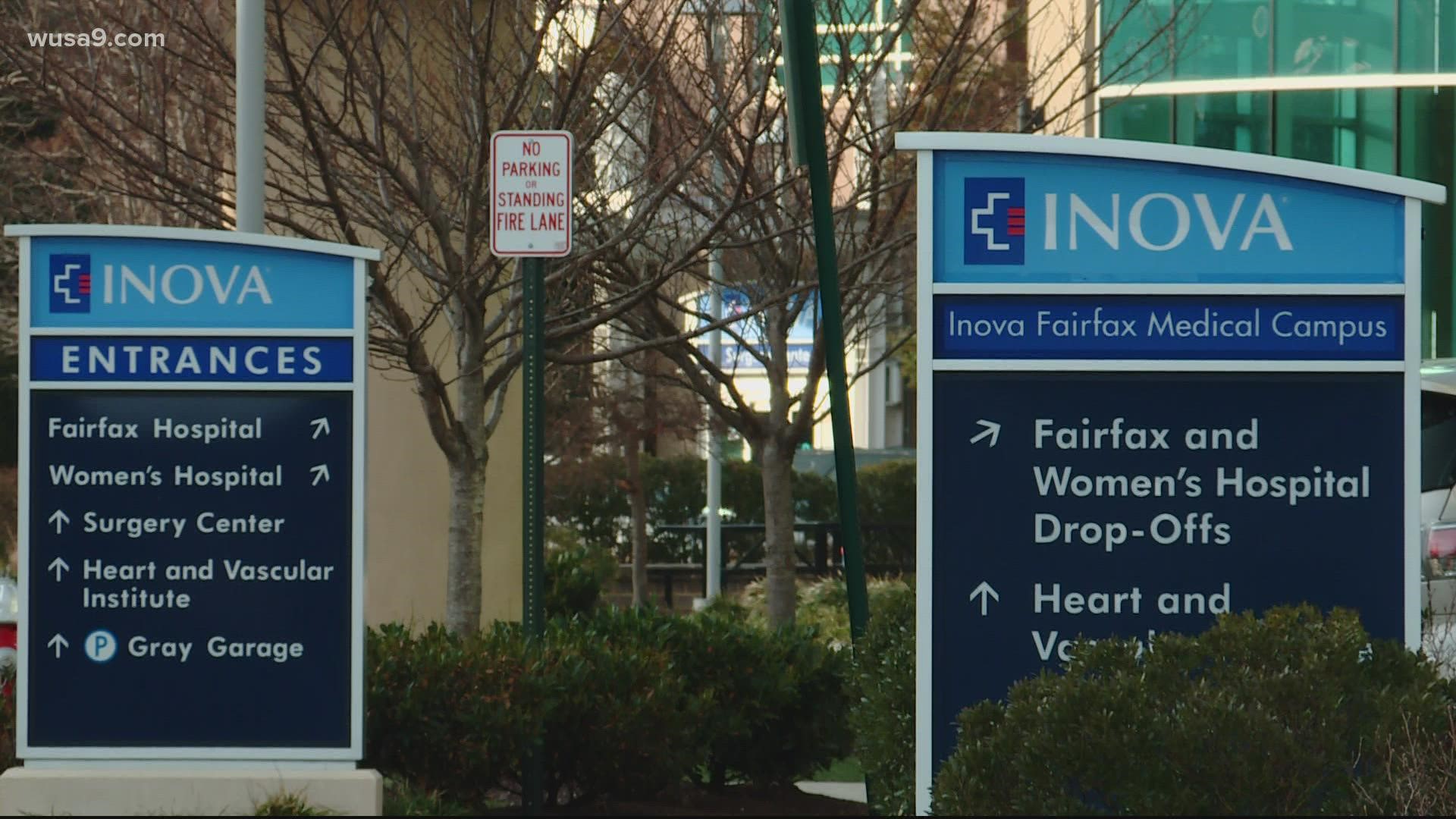FAIRFAX COUNTY, Va. — It's been nearly two years since the word COVID-19 began consuming the minds of frontline workers. As we navigate into 2022 the weight of the pandemic is getting heavier for those carrying the burden. The omicron variant is causing a surge in COVID-19 cases across the D.C. region.
This week the Virginia Hospital and Healthcare Association recorded a pandemic high of hospitalizations across the Commonwealth and Virginia Governor Ralph Northam issued an emergency order through the month in an effort to help medical facilities get the resources they need.
In talking with Inova Fairfax frontline hospital workers it's apparent the burden or the rise in COVID cases and hospitalizations is both physical and emotional.
“The last two weeks we've definitely seen like a rapid increase in the COVID cases, which it does put a lot of stress on the unit, " Chandler Class, an Inova Nursing Unit Supervisor said. “It's definitely like a big emotional burden when you come to work, you don't exactly know what it's going to be there. I was personally a little shocked when I came back from a day off and saw that our whole unit was COVID again.”
Dr. Christopher King also works at Fairfax Hospital as the medical director of the Transplant and Advanced Lung Disease Critical Care Program. He said this surge of COVID cases with the omicron variant is different than previous variants such as alpha and delta. King said omicron does not appear to be as severe, however, it is affecting more of the hospital.
King said the hospital could previously lean on the pediatric side of the hospital to pull staff and resources, but now the children's side of the hospital is busy as well.
He said with the hospitals full they've had to get creative about getting people through the hospital system, with some specialty departments being asked to pause.
"With this surge and our limited capacity of beds we've had to make some decisions, if there's not a specific service that we would offer that patient then we've been trying to manage those patients at their local hospitals with just some advice from the transplant team," King said. "We've so far never had to turn patients away from our emergency room and we hope that not get to that point and they've been very creative about coming up with ways to get people out of the hospital safely."
Dr. Sam Elgawly is charged with looking at Inova's hospitalizations, bed utilization, and the flow of patients as the system's Hospitalist physician and Director of Quality. Elgawly said with staff members contracting COVID and rising hospitalizations, he said right now it's manageable but it has been strained.
“The system is very busy. The system is strained. We have nurses and MDs that are tired. They're working like nothing I've ever seen," Elgawly said.
“We've had to get creative about how we use our bed space," Elgawly said. "So what before may have constituted an ICU bed has become redefined, or a normal bed has been redefined. How we combine our doctors and nurses as a workforce has led to a lot of creativity to where we put patients.”


Through all the strain, King said it's being felt by frontline workers from hospital administrators coming up with ways to serve people, and nurses and doctors wearing personal protective equipment upwards of 12 hours a day.
"You know, and all those things, I think, do take a psychological toll on the staff," King said. "You know, I know there's been some frustration when you see patients coming in unvaccinated and that you know that some of these things seem potentially preventable."
Preventable through vaccines.
"We know that vaccines are helpful in reducing the severity of illness, you know, it's not a perfect cure, and certainly sometimes patients can get sick even when they do the right thing and get vaccinated,” King said.

